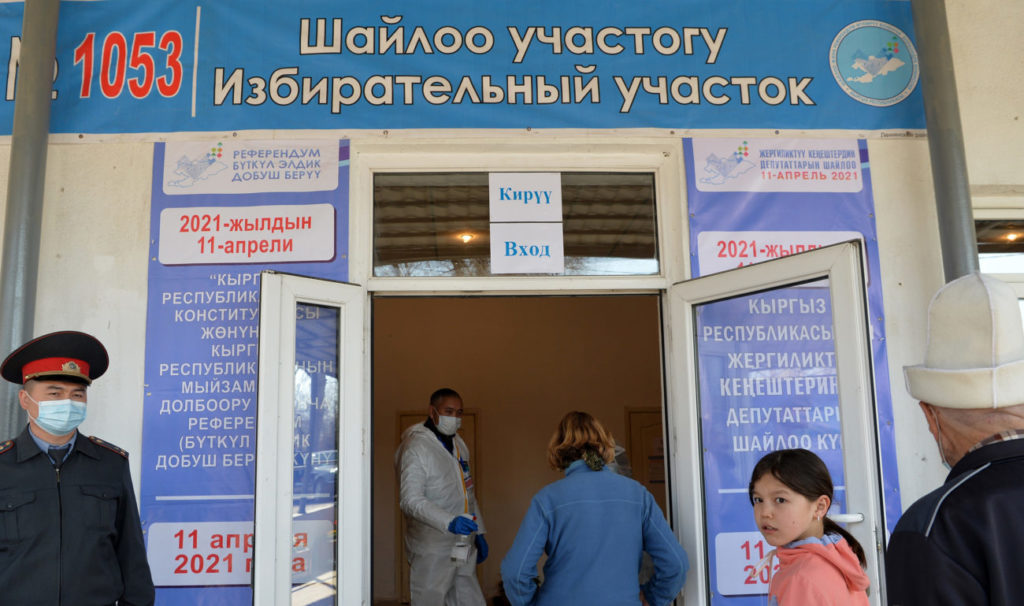A new Kyrgyz constitution, proposed by referendum, was approved by 79.3% of voters according to preliminary results. Turnout, however, was low: just over 35%.
Voters in Kyrgyzstan have approved a new constitution. According to preliminary results of the 11 April constitutional referendum, 79.3% voted for the change, the Kyrgyz Central Electoral Commission (CEC) announced. With this vote and the new constitution, Kyrgyz President Sadyr Japarov sees his role gain sweeping new powers.
Want more Central Asia in your inbox? Subscribe to our newsletter here.
The vote, which took place at the same time as local elections, had very low turnout. Also according to the CEC, 35.9% of citizens of voting age participated in the poll, slightly above the threshold of 30% legally required to validate the referendum. This proportion is similar to that of the presidential election on 10 January, which Sadyr Japarov won with nearly 80% of the vote but a 39% turnout.
A victory for the “Khanstitution”
Despite everything, the vote remains a new milestone for Kyrgyzstan’s new strongman. Sadyr Japarov proposed this constitutional change in mid-November 2020, shortly after a rise to power that saw him go from convict to prime minister and interim president. Critics in and out of the country say the new constitution will make Kyrgyzstan an authoritarian state.
Read more: Rise and fall… and rise: the career of Kyrgyzstan’s Sadyr Japarov
These critics have sometimes referred to this new constitution as a “Khanstitutsiya” (that is, a “Khan constitution”). Indeed, it greatly expands the president’s power without providing institutional counterbalance. As described by the Kyrgyz media outlet Kloop, the new constitution makes the president the sole head of the executive, reducing the prime minister to a subordinate role. The president can in addition now propose laws directly to parliament. According to the Venice Commission’s analysis at the end of March, this “creates a real risk of undermining the separation of powers and the rule of law in the Kyrgyz Republic”.
“Super-presidential” government
Correspondingly, the Kyrgyz press agency AKIPress describes the new constitution as a “legally enshrined super-presidential form of government “ and points out that Kyrgyzstan was de facto under such a system of government already under the presidents Askar Akaev (1990-2005), Kurmanbek Bakiev (2005-2010) and the final years of Almazbek Atambaev‘s presidency (2011-2017).
“To put it simply, the governments of Kyrgyzstan have already tried all possible variants of the political system,” AKIPress adds. “But the problem that we do not want to recognise does not lie in the constitution or in the lack of ideal laws…”
President Japarov describes the constitutional referendum as a solution to political instability in Kyrgyzstan. “Kyrgyzstan has been looking for its way for thirty years, a time during which there have been waves of unrest. All of this is a consequence of the incoherence of our intentions and aspirations,” he declared on the day of the referendum. “Our future path is closely linked to your decision today.”
Updated at 11.50am on 12 April 2021: added final section
Etienne Combier
Editor-in-chief of Novastan France
Florian Coppenrath
For more news and analysis from Central Asia, follow us on Twitter, Facebook, Telegram, Linkedin or Instagram.
 Kyrgyzstan: voters approve new constitution in referendum
Kyrgyzstan: voters approve new constitution in referendum 



